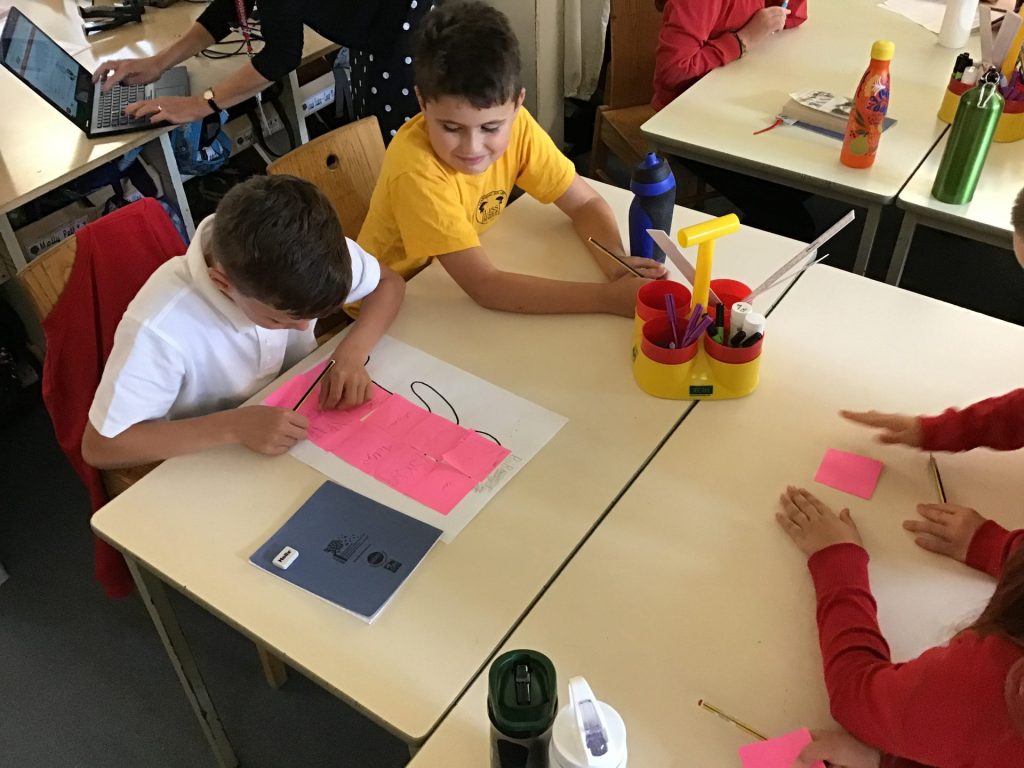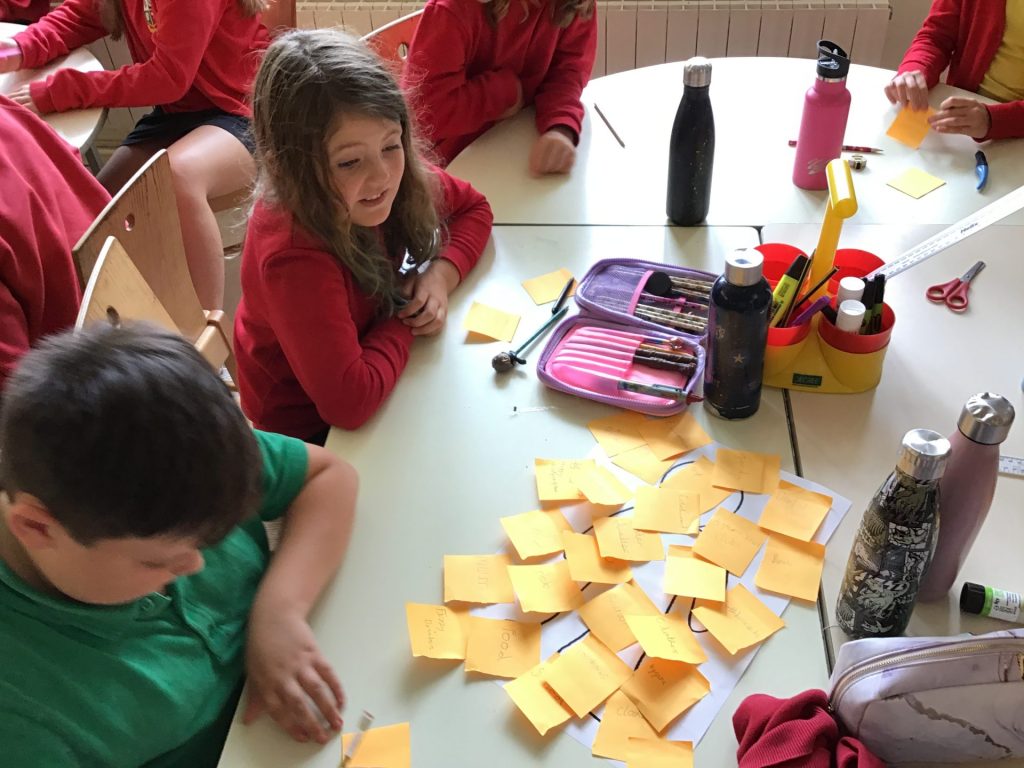A large part of the first week of a new school year in Yr 6 is an examination of wants and needs and how it plays a part in our lives.
Rowan Class started their study by being placed into table groups. Each group was then giventhe outline of a child before being asked to give their child a name. Next the group were allowed 10 minutes to write on post – its as many things that the child would need in order to grow up happy and healthy. At this point they were asked to stop.
The next task the children were given was to start removing post – its that they felt were the least important. Initially, this was to leave only the twenty most important post – its then removing five at a time until they were left with the five post -its that they felt were most important.
Among the most important considerations the children came up with was education, a family, clean water/sanitation, nutritious food, recuperative sleep and exercise.
Mr Stanley then gave the pupils 20 wants and needs cards and the same type of exercise was repeated. The children worked together to get down to the five most important cards to them by removing 5 cards at a time. As they gained more understanding of some of the statements, the discussions became a bit more heated. What became clear was that the children were making a distinction between wants and needs:
Needs – the things that are absolutely necessary for all children to have or be able to do to live a happy and healthy life
Wants – the things that are nice to have but are not necessary for a full life.
When the groups shared their final 5 post-its there, was some similarities between what they had originally selected for their child, but there was also some differences. Nutritious food, shelter, medical care and sanitation were the most popular, but there were some changes to what the children considered most important. The right to express opinions, the freedom to practice their own culture and religion, and protection from abuse an neglect were all very important. This is quite possibly a recognition of things we value from living in a democracy.
We then compared what our pupils had shared with that of Kafuro pupils the last time they carried out this exercise. There was a good deal of commonality in that Kafuro pupils felt that shelter, nutritious food and clean water were really important. Where there was a difference was that Ugandan children valued clothing and land really highly. In Uganda, particularly where there are rural communities, having land to grow crops on is highly important. When your family’s livelihood is dependent upon harvesting and selling those crops, then everything else pales into insignificance. Likewise, for some children, they might only have a couple of sets of clothes (one of which is their school uniform). Therefore we can see how depending on your circumstances, your needs may change slightly.
In the next post, we will look at how the UN Convention on the rights of the child is centred around needs.







